by Elliott McNary
My First Month At Free Code Camp
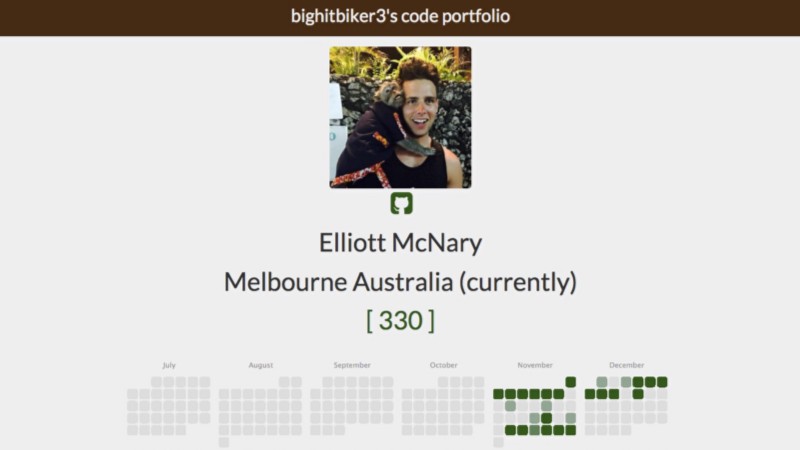
I wanted to build an app that would help artists to make more money.
I had a clear idea of what I wanted built. So I started searching for someone to build it for me. I was looking for a technical cofounder.
But after a short search, I realized that most people who could code had their own ideas. They wanted to build their own dreams. Why would they want to help me build mine?
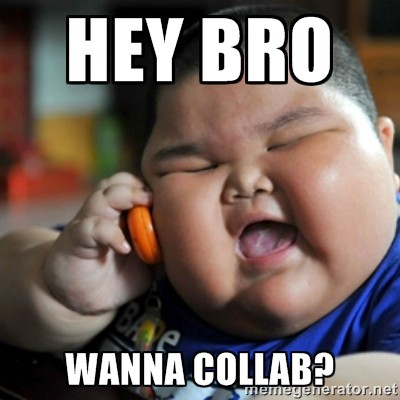
I read about how Yipit founder David Sinsky was able to learn the basics of coding in 8 weeks, so that he could build his Minimum Viable Product. This inspired me. 8 weeks! So I googled around for a few hours, trying to see how long this journey would take me, given the scope of the scope of my idea.
What I found was discouraging. Learning to code well enough to build a sufficiently sophisticated product of my own would probably take thousands of hours.
Well, I might as well get started
Event though I ended up getting a Finance degree, (University of San Diego class of 2012), I’ve always been more fascinated with technology. But I never thought I was smart enough to learn to code. For starters, I wasn’t all that good at math.
In retrospect, I just clung to a few precious excuses. Because, in reality, coding just didn’t give me instant gratification I hoped for — at least not in the first few hours.
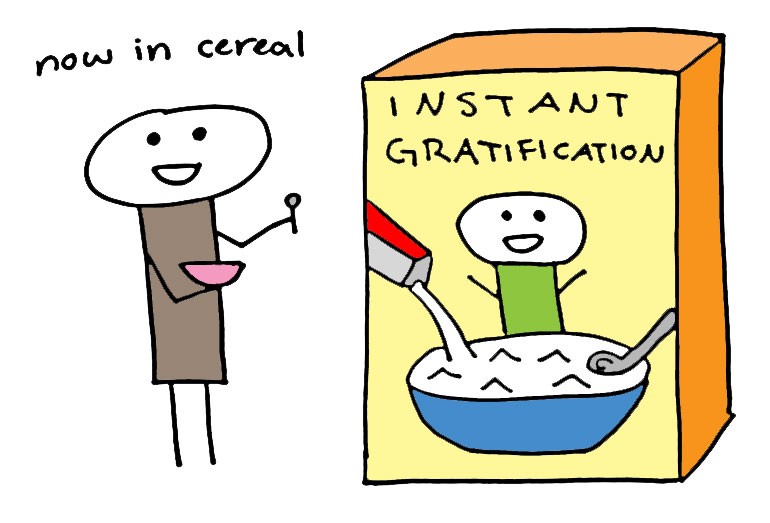
My expectations around learning to code mirrored my approach to learning how to use digital audio workstations for making music. When I was sixteen, I downloaded FL Studio. I opened it for a few hours, but I couldn’t figure it out. So I deleted it.
Finally, like six years later, I downloaded Ableton, and said — Elliott. Sit down and learn this. You want to make music, so put in the time.
So I did. After about 30–40 hours, I understood the workflow well enough to start making some pretty terrible beats!
Coding was the same way for me. I tried learning to code once for like 2 hours. I couldn’t figure it out, and I never came back to it.
Now, back to my first month’s journey
First stop: looking for resources and reading articles about which language to learn. Next stop: fooling around with CodeAcademy and Code4Startup.
I then ran across the story of how Quincy Larson learned to code. He’s a true inspiration to any aspiring programmers. I highly suggest you read his story.
Anyway, Quincy and a team of other like-minded programmers have built a community called Free Code Camp. You work through an intensely difficult curriculum. Then — after about a thousand of hours learning — you get to build applications for nonprofits in need.
My favorite part about Free Code Camp is that it doesn’t beat around the bush. They doesn’t feed me sugary lies like:
Learn to Code Ruby on Rails in two weeks! Only $300!
No. Free Code Camp was real with me. They said:
Hey, this is going to take a long time for you to learn, but we’re here to help you along the way.
I liked that.
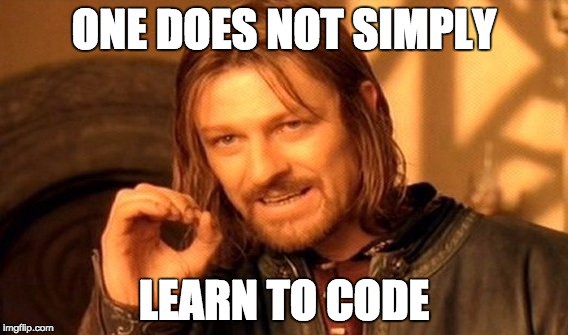
I started Free Code Camp on Nov 2nd, and it quickly became an obsession. I began waking up at 5:30am before work so that I could get in a couple hours of coding. As soon as I got home from work, I’d once again hit the curriculum hard.
I was addicted.
Jumping into a Bonfire
Shortly after the Waypoints, I got into what are called the Bonfires. These algorithm scripting exercises were incredibly daunting when I first encountered them. I immediately had a wave of anxiety that I wouldn’t be able to do this. It felt like I was in way over my head.
But I calmed down. I remembered that this wasn’t going to be easy. I remembered that for each of these Bonfires, there were tons of viable answers. It’s all good —I told myself — if I stick with it, I’ll eventually find one.
I hit the books hard, arming myself with knowledge of JavaScript methods and data structures, so that I could more easily complete the Bonfires. When I completed my first Bonfire, I was ecstatic. (Technically it was the second Bonfire — the first Bonfire just involves changing a boolean value.) It felt like I’d just solved world hunger or something.
I’d been so incredibly frustrated while trying to figure out a solution. And that made solving the problem all the sweeter.
That’s when I discovered what I love about programming: I love struggling. I love push myself. I love knowing that there is a solution. And that I just need to find it.
I started cruising through the Bonfires with the help of the amazing people who hang out in the Gitter chatrooms. Quick shout-out to @qualitymanifest and @allanarmstrong — you always seem to be there when I need help.
My main gripe with learning to code in general was not knowing whether what I’m learning is actually useful.
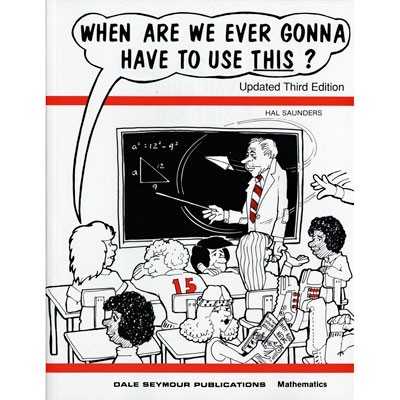
Sliding down some Ziplines
Ziplines are small front-end projects like building a calculator, or portfolio page, or a pomodoro timer using HTML, CSS, and JavaScript.
The portfolio was pretty straightforward for me. It was primarily HTML and CSS, which I understood.
But when I got to the Pomodoro timer exercise, I freaked out again. I was in the depths of despair. I didn’t know how I was going to be able to pull this one off. I was so close to giving up. But I couldn’t. I had told too many people that I was learning to code.
So I buckled down and started googling. I supplemented my learning with Codecademy and other resources. I finally got started on the clock, and remember vividly when I figured out how to get it to change from 1:00 to 0:59.
I was almost as excited as when the Seahawks beat the Packers in the NFC Championship in 2015. 0–16 at the first half. We came back and were going to the Super Bowl again.
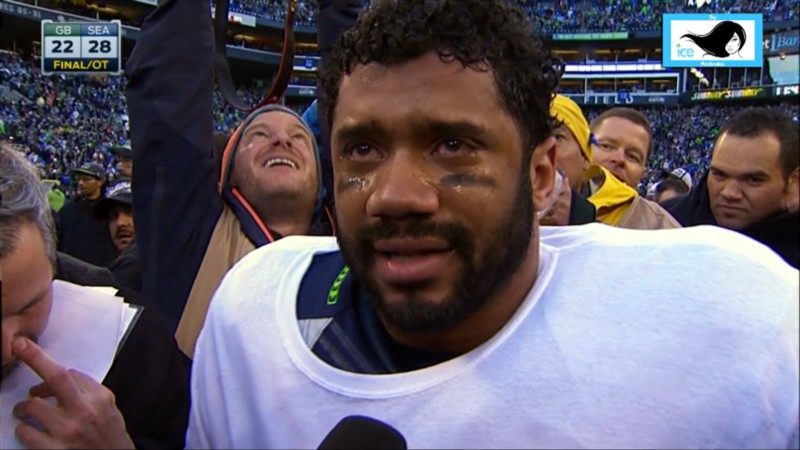
From there I realized that I could do this. I just needed to get to work.
And worked I have. I’m about to finish my front end projects. I don’t know if I’m learning quickly, if this is average, or if I’m taking longer than normal. I really don’t care. I’m going as fast as I can.
I’m learning and challenging myself, and it’s awesome
At this point, the idea for my original product for artists has now taken a back seat. Learning to program has become my main focus. Once I’m proficient, I’ll be able to build whatever I want. Until then, back to Free Code Camp and its helpful community!
I can’t thank the Free Code Camp team enough for what they’re doing. It’s nice to see people building something without millions in venture capital funding or dreams of billions of dollars in quick profit.
It’s awesome to participate in something that is literally changing the way education works. Quincy and the team are doing something amazing.
At this point, I realize that I sound like a Justin Bieber-obsessed 14 year old. But the support and knowledge that this community has given me — and all of its campers — is absolutely astounding.
You can learn to build these things. A little over a month ago, I had no coding experience. Now I’m using APIs to build things that I never imagined I’d be able to build in a million years.
If you are trying to learn to code, join Free Code Camp.
And if you have a moment, check out my Zipline projects on CodePen.
This is just the beginning. And I couldn’t be more excited about the future.